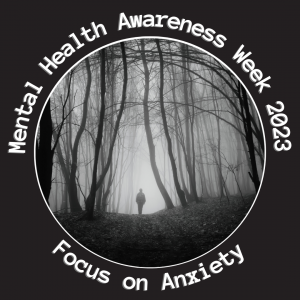Nearly 30% of people experience teeth grinding and jaw clenching which is medically called bruxism. Almost 10% of those that grind do it so severely that their teeth are reduced to small stumps. Bruxism affects all ages groups, children to adults, causing severe tooth damage, jaw disorders, and headaches.
There are two types of bruxism
- Awake bruxism: clenching or gnashing of teeth and jaw while awake. Daytime grinding happens when people are living with anxiety, under stress, but it can also just be habitual.
- Sleep bruxism: also known as nocturnal bruxism is considered a sleep-related movement disorder which often occurs in conjunction with other problems such as sleep apnea, snoring or restless legs syndrome.

Symptoms
Whether clenching during the day or grinding at night, many people don’t notice they have a problem with their teeth until complications develop. A dentist may be the first person to see the damage. Signs and symptoms of teeth grinding can include:
- Sensitivity; hot, cold and sweets foods
- Dental damage, teeth are chipped, loose, fractured or worn away
- A dull headache located around the temples
- Jaw or facial pain especially first thing in the morning.
- Achy, tight jaw muscles, or soreness in the mouth or tongue from chewing on the cheeks
- Ear pain
- Disturbing sleeping partner or housemates due to loud sounds of grinding, parents have reported being woken by their sleeping child’s clenching, gnashing and grinding.

Risk Factors & Causes
In adults, the causes of teeth grinding may reveal one or more of the following underlying medical conditions
- Sleep apnea
- Anxiety disorders
- Depression
- Gastroesophageal reflux disease (GERD)
- Unresolved anger or frustration
- Unmanaged stress
- Abnormal alignment of upper and lower teeth
- Illness such as Huntington’s or Parkinson’s Disease
Some medications including antidepressants can also increase the incidence.

Research has associated bruxism in children with those who have asthma or anxiety disorder, teenagers and children with an anxiety disorder should have regular dental checkups to prevent long-term damage; chipping or breaking or enamel erosion. Evidence suggests some young children may begin to grind their teeth as a natural response to the pain of teething or an earache. Studies have also noted that’s that hyperactive children and those with aggressive or competitive personalities may be more prone to developing the condition. Also, dentists or orthodontists assess dental alignment as bruxism in children and teens can be an early sign of poor alignment..

Treatment options
Mouth Guard
The most common is using a custom-made mouth guard designed to be worn at night to keep teeth separated and the jaw relaxed, thus preventing grinding or clenching. While some people find a mouth guard to be uncomfortable, it is one of the best ways to protect the health of the teeth at night.

Alignment Correction
A dentist may advise to use a night brace, fitting crowns or reshaping the chewing surface of the teeth to restore proper alignment.
Prescription Medication
When the cause is due to stress or anxiety, doctors may prescribe muscle relaxants or other medications.
Botox Injections
If a people don’t respond to the treatment above some, Botox injections can be useful in reducing the muscular pain associated with bruxism; this may not be available on the NHS.
Manage Stress
There are lots of techniques, choose one that will work for you on a regular basis; physical exercise, meditation are two of the most popular currently.
Osteopathy can help too
Osteopathic treatment of jaw problems is aimed at gently easing tension and releasing the stiff joints in the head, neck and upper part of the spine to relieve the pressure in the muscles. If the muscles of mastication (chewing) are chronically tight intra-oral work may be beneficial, the details of these techniques will be explained, and permission sort before the treatment is offered.
In summary, if you have the symptoms below or your sleep partner complains of your noisy teeth gnashing, then its worth a check-up with your dentist.
- Recurrent, unexplained headaches, especially in the temples
- Head, neck or shoulder pain
- Sensitive teeth
- Breakage/chipping of teeth or fillings
- Ridging of the tongue or inside the cheeks
- Tightness in jaw muscles
- Gum recession
- Clicky jaw
- Worn down teeth surfaces, especially evident in front teeth
Getting support to stop bruxism can help prevent long-term dental damage and may also resolve or manage chronic pain in the face, ears, and jaw. Left untreated bruxism especially the nocturnal type may lead to increased periods of poor-quality sleep.
SaveSave
SaveSave
SaveSave
SaveSave






